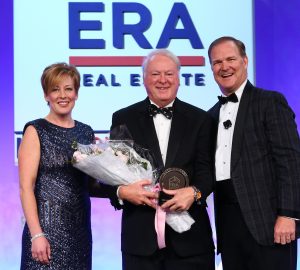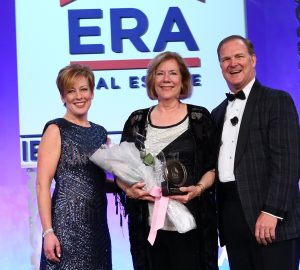Last month, more than 200 real estate executives gathered at the fourth annual T3 Summit to learn about leading companies through challenges and change.
Organized by real estate visionary Stefan Swanepoel, a keynote speaker at ERA’s 2016 International Business Conference, the T3 Summit focused on creating an environment for leaders to share their unique experiences, discuss best practices in overcoming the challenges the role as chief brings and focus on specific solutions for leading their companies and the real estate industry into the future.
 According to ERA’s president and CEO Charlie Young, who served as a speaker during the annual Real Estate CEO Roundtable, the most valuable aspect of the conference was the insight provided from leaders outside the real estate industry.
According to ERA’s president and CEO Charlie Young, who served as a speaker during the annual Real Estate CEO Roundtable, the most valuable aspect of the conference was the insight provided from leaders outside the real estate industry.
Rick Miller, former president of AT&T Global, CEO of Lucent Technologies and author of the book Be Chief, spoke about his more than 20 years of experience at the helm of companies on the brink and how he architected turnarounds of unbelievable proportions. He shared insights from his early years as a sales trainee in the tech industry where he learned important lessons about relationships, accountability, and constant change, to his emergence as a proven “turnaround specialist” known for driving exponential growth in iconic, global companies.
Paul Charon, former Chairman and CEO of Liz Claiborne, Inc. and current Chairman of the Campbell Soup Board of Directors, chronicled his 11-year journey of revitalization for Liz Claiborne Inc. Under his leadership, the company evolved from being dependent on a namesake brand sold almost exclusively through U.S. department stores into a powerful international, multi-brand and multi-channel business. During his tenure, he focused on driving growth, both organically and through successful acquisitions and generating substantial returns for investors.
“Leadership comes in many forms,” said Young. “To be exposed to the many ways companies and organizations are cultivated and fostered was invaluable. A key takeaway was that my own approach of playing offense not defense is a critical element in leading through change.”



